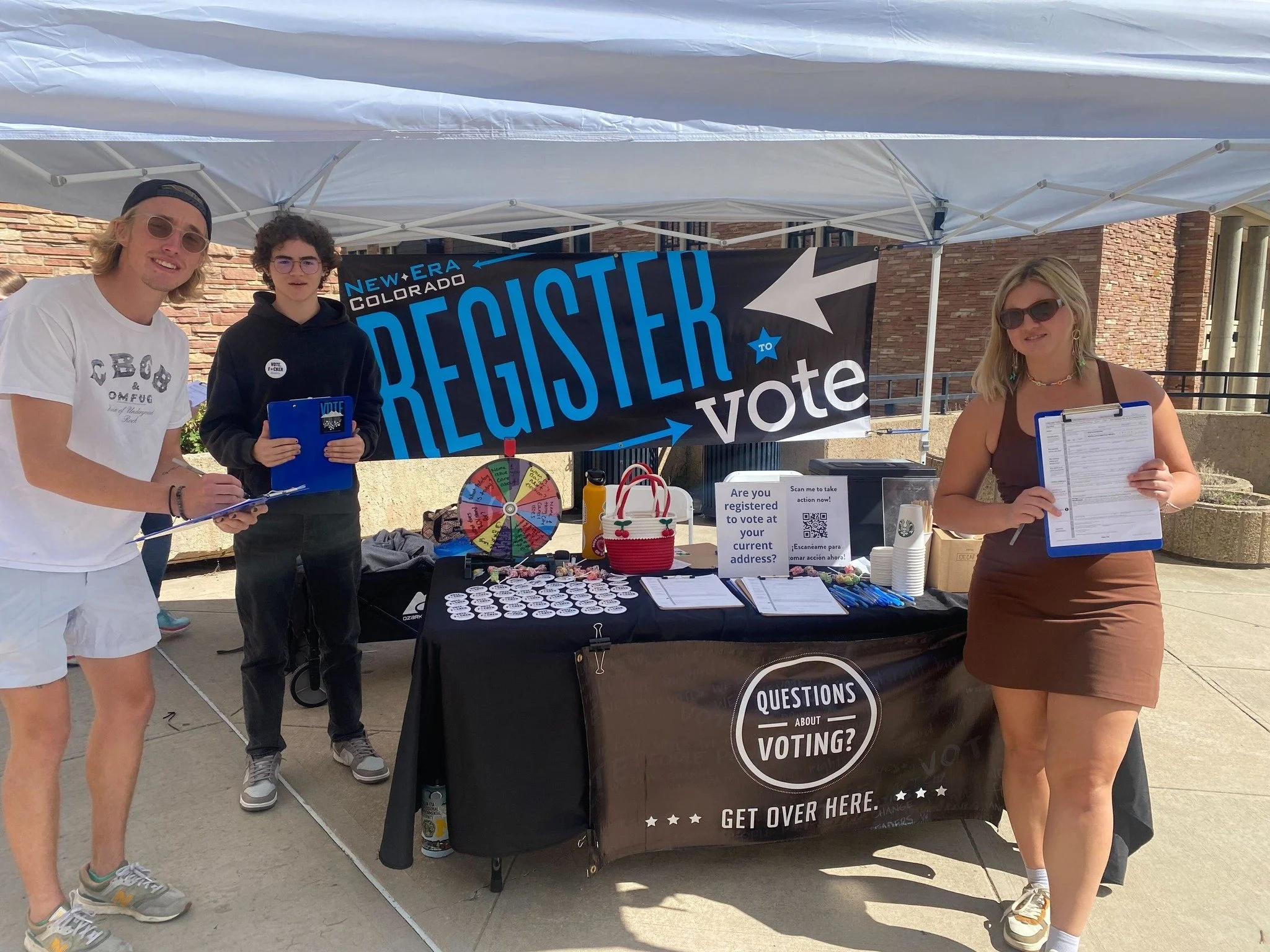To Catalyze Youth Turnout, New Era Colorado Focuses on Issues
This autumn, Democrats will be targeting two critical House races in the state of Colorado. One is the campaign taking place in Lauren Boebert-abandoned CO-3 along a large portion of the western and southwestern third of the state. Adam Frisch is once again running in that district after losing in 2022 to Boebert (who is now running in CO-4) by 554 votes. The other race is in CO-8, a district with a sizable Latino population in a narrow northern section of Colorado represented by Democratic incumbent Yadira Caraveo. Caraveo is likely to face Donald Trump-endorsed Republican Gabe Evans.
Colorado is a state renowned for its colleges and universities, and both the third (e.g. Colorado Mesa University and others) and eighth districts (e.g. Colorado State and others) contain them; turning out young voters in these communities could be the difference between victory and defeat for the congressional candidates, not to mention the national balance of power in the House.
New Era Colorado, the state’s top youth organizing group, is leading the push to bring out young voters. But the key to driving turnout and meaningful long-term action, says New Era’s Deputy Director, Christina Soliz, “is not going to be top-of-the-ticket candidates, it’s going to be issues.”
A Bottom-up Agenda to Excite Colorado’s Young Voters
New Era released its Youth Agenda in 2021, the product of interviews, listening sessions, and surveys conducted with young people around Colorado. The democratically sourced document represents the organization's official policy platform and seeks to drive change through “policymaking, organizing, and civic engagement.” It presents a holistic vision of the world that transcends individual election cycles while embracing abundance and shared humanity.
The Youth Agenda drives everything New Era does, whether it be work around elections, state legislative sessions, or movement building. For the 2024 election cycle, it is driving work around reproductive rights, which the organization believes will both drive turnout in November and have a meaningful long-term impact.
“We are a leader on an abortion ballot measure here in [Colorado], Initiative 89, and it would solidify abortion rights in our state constitution,” said Soliz. “So that is what we are organizing around, and what is going to drive turnout for young folks this election cycle.”
On top of organizing around Initiative 89, New Era is also using its Youth Agenda to engage with young people who may feel alienated from and melancholic about American politics. Soliz noted that organization-driven progress made on state housing policy, something of crucial importance to young people around the country, is particularly potent when breaking through civic apathy.
“We were able to pass two priority bills,” explained Soliz. “One is prohibiting occupancy limits, which would allow more unrelated folks to live together which has huge impacts for young folks in the state. The other one was for cause evictions, which gets rid of bogus evictions for young people. So, pointing to those wins and letting them know that progress is driven at the state level and folks can actually see those wins and feel that is one of the tactics that we use to get through to young folks.”
New Era’s Strategic Plan to Boost Youth Turnout in Colorado
Since its founding in 2006, New Era says it has registered over 250,000 young Colorodans to vote. In 2020, the organization turned out 86% of its registrants for the general election, in large part thanks to efforts made to rally around defeating Colorado Proposition 115, which would have placed restrictions on state abortion laws. Statewide turnout of 19-29-year-olds in 2020 was 63%, one of the highest rates in the nation.
For 2024, New Era is utilizing what Soliz described as a “deeply layered strategic plan to reach young voters.” In the primaries, this meant targeting “about 5,000 young people” in the New Era base to support locally endorsed, Youth Agenda-aligned candidates, according to Camila Navarrette, New Era’s communications director. This meant making phone calls, sending texts, and fostering a “strong digital ad program.” The digital ad program was also one way New Era looked to expand beyond its base, as the organization also targeted 20,000 non-base voters in candidate-endorsed districts through targeted phone persuasion and mailings.
New Era employs five trusted community activists around the state year-round who conduct local events, table on college campuses, and talk to base voters about upcoming elections and legislative sessions, as well as, of course, about the Youth Agenda. For the general election, New Era plans to engage over 50,000 voters. To aid in this effort, it plans to hire a dedicated canvassing team while continuing to rely on tried and true tactics from the primaries.
“The biggest challenge that comes to mind whenever we’re talking about the election in particular with young folks is that apathy and frustration that they feel,” said Soliz. “Getting through to them on maintaining that votes are still important and really honing in on the issues and the candidates who are going to represent them and frankly look like them too is the way we are trying to get around that and have intentional conversations with voters.”

